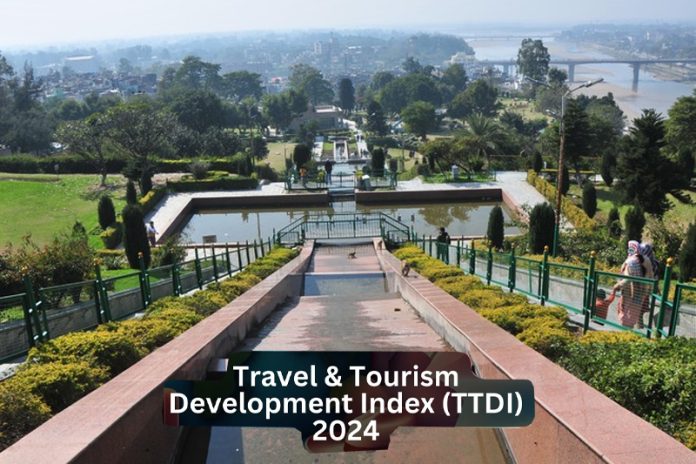India’s remarkable ascent to 39th place on the World Economic Forum’s Travel & Tourism Development Index (TTDI) 2024, from 54th in 2021, marks a significant milestone in the nation’s journey towards becoming a global tourism powerhouse. This achievement underscores the efficacy of India’s strategic initiatives aimed at enhancing its travel and tourism sectors, despite the unparalleled challenges posed by the COVID-19 pandemic. The 2024 TTDI highlights that India’s elevation in ranking is not merely a numerical feat but a reflection of the country’s comprehensive and sustained efforts in various domains. The index, prepared in collaboration with the University of Surrey, evaluates countries based on a range of factors and policies that influence the development of their travel and tourism sectors. India’s exceptional price competitiveness, ranked 18th globally, is a significant driver of its tourism appeal. The affordability of travel in India, coupled with competitive air transport infrastructure (26th) and robust ground and port facilities (25th), creates a conducive environment for both domestic and international travellers. These infrastructural advancements, facilitated by targeted Government policies and investments, have bolstered India’s tourism infrastructure, making travel more accessible and convenient.
India’s natural and cultural wealth continues to be a cornerstone of its tourism allure. Ranked 6th in natural resources and 9th in both cultural and non-leisure resources, India is one of only three countries to feature in the top 10 across all resource pillars. This highlights the country’s diverse and rich tapestry of attractions-from the majestic Himalayas and serene beaches to historical marvels like the Taj Mahal and vibrant cultural festivals. These resources not only attract tourists but also play a crucial role in preserving the nation’s heritage and biodiversity. The TTDI report also sheds light on India’s commitment to sustainable tourism. Despite a decline in travel and tourism demand sustainability compared to 2019, India still scores commendably, particularly due to an increase in sustainable long stays among inbound visitors.
The global trend is towards responsible tourism, which emphasises minimising environmental impact and maximising socio-economic benefits for local communities.
However, India’s journey is not without its challenges. The report notes that global inflationary pressures and supply-side trends have impacted travel and tourism enabling conditions, leading to a decline in price competitiveness and an incomplete recovery of air transport and tourist services infrastructure to pre-pandemic levels. These challenges necessitate continued focus on enhancing infrastructure, managing costs, and fostering an environment conducive to tourism growth.
India’s ascent on the TTDI is particularly notable against the backdrop of global tourism dynamics. The United States tops the 2024 index, followed by Spain, Japan, France, and Australia. High-income economies, especially in Europe and the Asia-Pacific region, dominate the top ranks due to their well-established travel and tourism infrastructure, open travel policies, and strong natural and cultural attractions. In this competitive landscape, India’s position as the highest-ranked country in South Asia and among lower-middle-income economies is a significant achievement. It demonstrates India’s leadership in the region and highlights its potential to serve as a model for other developing nations striving to enhance their tourism sectors.
The projected return of international tourist arrivals and sector’s contribution to global GDP to pre-pandemic levels offers a promising outlook for the future. To sustain and build on the momentum, India must continue to prioritise key areas such as infrastructure development, digital innovation, and sustainable tourism practices. Enhancing digital infrastructure to facilitate seamless travel experiences, promoting lesser-known destinations to distribute tourist traffic more evenly, and fostering community-based tourism can contribute to more sustainable and inclusive growth. Moreover, strategic marketing campaigns that highlight India’s unique offerings, coupled with policies that ensure the safety, accessibility, and quality of tourist services, will be crucial. With a continued commitment to infrastructure, sustainability, and inclusive growth, the future of Indian tourism looks promising, offering rich experiences to travellers from around the world, driving socio-economic development across the nation.
Trending Now
E-Paper


